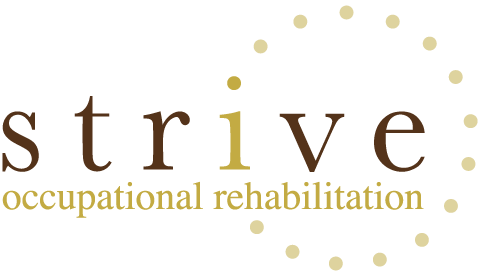
So many people are Re-evaluating their relationship with work but don’t know where to start to find out what is working and what is not. My MAGIC framework identifies the core drivers for a healthy relationship with work, these being Meaning, Authenticity, Ground Rules, “I” and Curiosity. In these essays, I am exploring these principles a little further and we have started exploring Meaning initially from an individual perspective but now we are going to explore it from a team’s perspective.
Meaning can and should also be considered from a team or organisational perspective. So often people are never shown the big picture; they are just expected to work away at their small piece of the puzzle. You can see how this might be destabilising where people don’t have that true north to face, particularly during challenging times as all workplaces face at one point or another.
Just like when we were considering our individual meaning it can send us quickly into overwhelm when we consider these big questions like meaning. We also know that as a result of our reliance on technology our concentration and attention span is dwindling and when this is the case it can feel difficult to explore these broader questions. Sometimes it feels easier just to do what is in front of us. However, if we want a workforce that thrives, the type of transactional activity where you expect your people to just come in and do the work without any reference point to what they are working toward won’t cut it.
Again, when we are faced with questions that feel overwhelming it is best to start with small manageable components and then build on these steadily. When considering meaning we might look toward who we are as a group and then what success looks like for us. When we get clarity on these concepts it can provide clues to the elements of what is actually important to us and this provides us with our Meaning.

Let’s start with who we are as a group. Depending on the size of your organisation you might explore your values as a team, as a means of examining who you are within a larger organisation where the values might be established. If you are a small organisation, you might have considered your workplace values. Could I suggest that you review these with your current team to see if they still fit? Just remember that the world has changed a lot over the last couple of years. Even my own organisation which began in 2004 with the values of Integrity, Quality Service, and Respect for Others reviewed our values in 2011 and added Health and well-being. We decided that not only was it core to our work with our customers but that if we were going to be able to continue to provide the services that we loved providing we needed to make sure that we “watered our own gardens first” to support our own health and wellbeing.
Now let’s stop for a moment as I want to acknowledge that any conversation around work values is fraught with difficulty as I think most of us have at least been exposed to at least one experience where this was handled badly. My clients tell me about words that are up on the wall but not alive in the workplace. Sentiments that are espoused to customers but not evident in the everyday running of the workplace. This type of values exercise has people shaking their heads and quite frankly running for the hills when they are mentioned. However, this exercise can be handled differently and when it is conducted in a way that people can then see it being practically applied in their workplace it can provide clarity and stability for a team. As I have mentioned before, given the past few years of uncertainty, this stability and understanding of our Meaning what we are tethered to and working towards has never been more important.
Where to start?
- Work on your values as a team.
- Allocate time to explore this comprehensively ( this is not an activity that can be wrapped up in a one-off team meeting)
- Make sure that everyone has a say.
- Drill down to what different values mean for different people ( I promise you this will be surprising just how differently we might understand different words given our individual life experiences)
- Describe how you would see these values being played out in your workplace and most importantly how they would be rewarded.
Practically speaking you might provide everyone with a list of values and ask them to consider these over a week and pick the three that would best represent and serve your team. You might also provide the option for people to add words. I recently ran a group and one of the team added the word Vibrancy to the values list. She felt that when they brought Vibrancy and energy to their work it set them apart from their competitors. From there you can come together and get people to present their words with an explanation of why and how you would see it in your workplace. Importantly, here it is important for everyone to have a voice. From there you need to drill your list down to two or three to ensure clarity and focus. (when we have too many priorities, is anything truly a priority?). This may be through a vote ultimately.

Once you have completed this stage; here comes the real work, outline what this means on an average day at your workplace. For example, one of our values is Respect for Others and one of the ways we would see this practically at our workplace is that we talk to people not about them. I would suggest for each value you outline two or three ways that you would see this play out at work. This is the step that takes the values off the wall and into real life. A further step would be to define how people are rewarded for living by the team values.
Having finished this exercise and discussion involved in defining and exploring your values you will also get some clarity about what is important to you and your team. Remember this is all part of developing a road map that supports you and your team to feel stable and supported at work because when we do feel this way we thrive and work begins to work again.
To find out more head to sharondarmody.com

 Making MAGIC begins with our understanding of Meaning
Making MAGIC begins with our understanding of Meaning